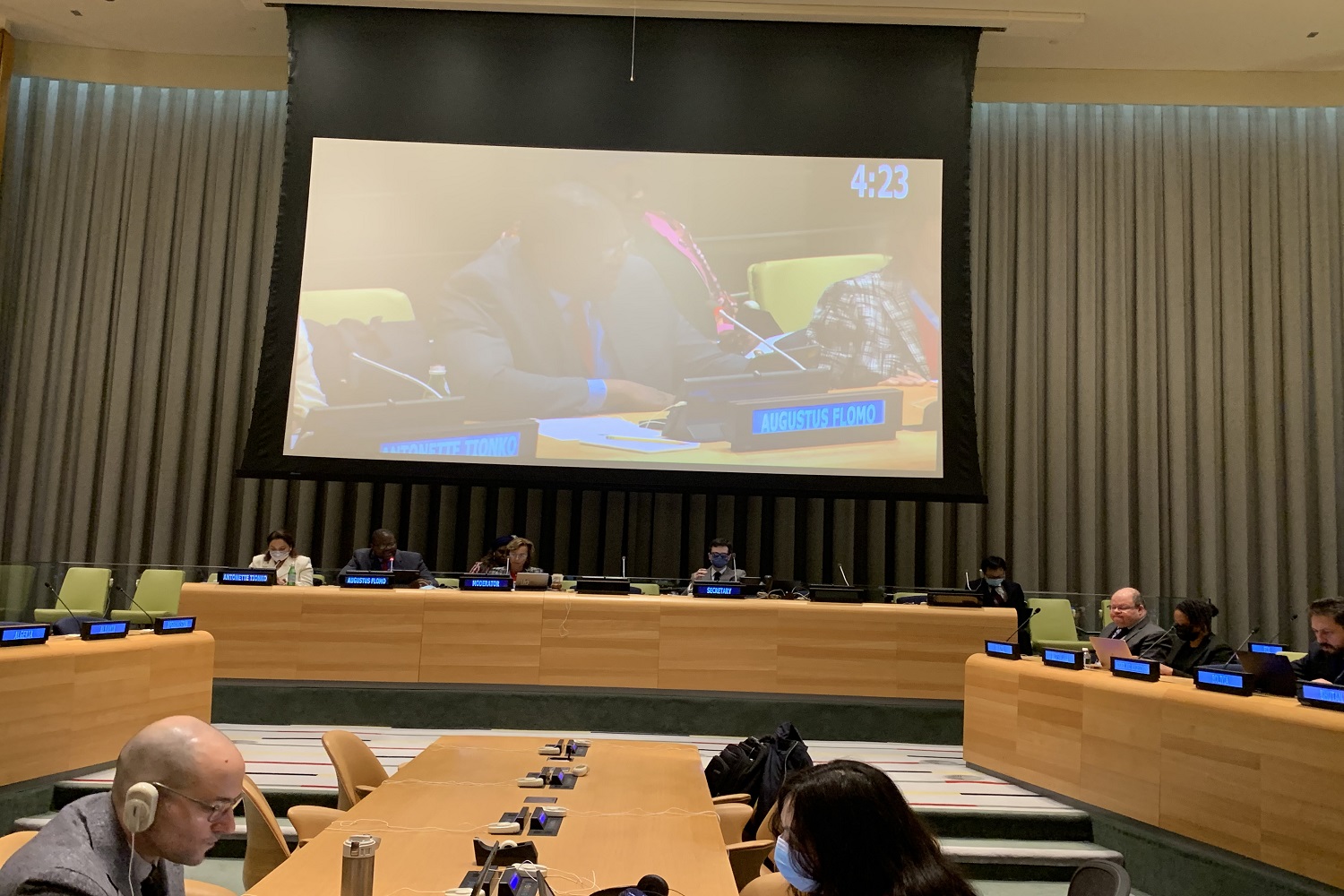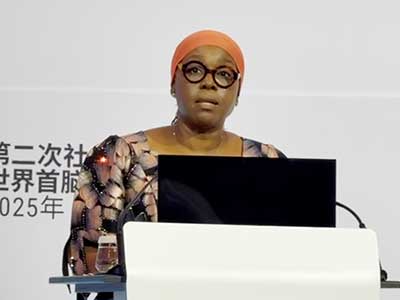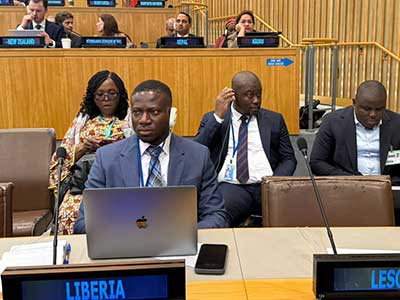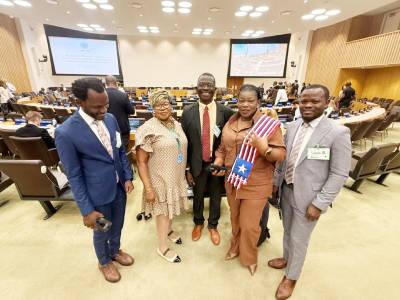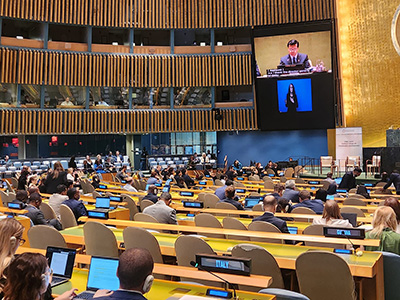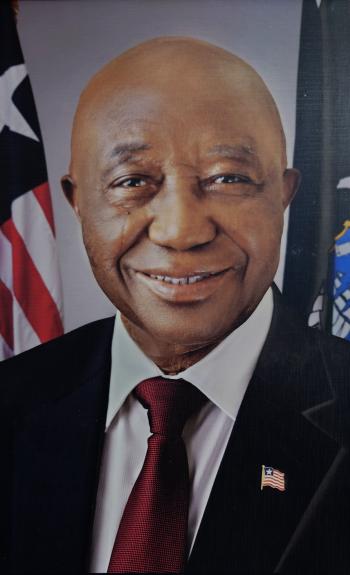The Deputy Minister of Economic Management at the Ministry of Finance and Development Planning says a strong partnership that enhances coordination and collaboration among all stakeholders is essential for building an effective tax system and raising revenue for investments in the Sustainable Development Goals.
Deputy Minister Augustus Flomo asserted that while there is no universally agreed standard, generally, an effective tax system must be fair in nature, acceptable, simple, transparent, and easy to administer for the general good of the public.
He noted that a good tax system enables nations to have the necessary assets to support development, reduce poverty, and transform public administration and acknowledged the significant strides that developing countries are making to strengthen their domestic revenue mobilization programs.
Deputy Minister Flomo: “Now a days, there are many governments, especially those of developing countries and LDCs that are strong in developing their Domestic Revenue Mobilization (DRM) programs meant to help enhance revenue collection; they need more help to get it done. These DRM programs have focused on tax expansion initiatives including VAT, excise, property, personal and corporate income taxes, etc.”
Deputy Minister Flomo made the assertions on Wednesday, April 27, 2022, when he served as a panelist at the Economic and Social Council’s Financing for Development Forum session on “Building a Fair and Effective Tax System and Combating Illicit Financial Flows” at the United Nations Headquarters in New York.
Reflecting on the negative impacts of the coronavirus pandemic on revenue generation, Deputy Minister Flomo shared that Liberia, like other developing countries, is responding by focusing more on reforming its tax programs, specifically the imposition of excise tax on certain commodities, digitalizing tax payments, and enhancing robust enforcement mechanisms.
Said Minister Flomo: “With the COVID pandemic affecting many countries’ economies especially Developing Countries, more focus has shifted to tax reform programs which include administrative reforms i.e. simplifying the tax code, streamlining tax payment processes using digital systems, building the human capacities in the application and use of digital systems while at the same time building capacities in revenue administration as well as reducing the size of the informal sector by incentivizing and improving business registration processes which would make it appealing for more businesses to get into the tax net and make the necessary contribution to increasing the fiscal space. Some of the concrete measures taken by the Republic of Liberia for example, can be seen as follow: The imposition of excise tax on certain commodities; making provisions for online filing of taxes and the availability of online platforms for payment of taxes that are due; robust enforcement mechanisms by the Revenue Authority that are meant to increase compliance. Additionally, a strong anti-smuggling measures implemented by customs to reduce under declaration and false declarations of taxable transactions.”
Deputy Minister Flomo then cautioned that while countries continue to work on tax reforms and restructuring their economies, illicit financial flows remain a critical obstacle to achieving the Sustainable Development Goals, noting an OECD report, which discloses that over US$1.6 trillion gets lost to money laundering each year.
He stressed the need to prevent and combat illicit financial flows while working to strengthen development cooperation, aligning with development priorities of countries as prescribed by the Paris Declaration on Aid Effectiveness, and promoting transparency, accountability, and good practices on assets recovery in the business environment.
At the national level, Minister Flomo called on developing countries to develop the political will to strongly commit to the fight against corruption by strengthening the legal and regulatory environments and building the capacities of integrity institutions such as Financial Intelligence Units, and audit agencies to address the issue of illicit financial flows.
The Economic and Social Council’s Financing for Development Forum is an annual inter-governmental process with the mandate to discuss the follow-up and review of the financing for development outcomes and the means of implementation of the 2030 agenda. It convened in New York from April 25-28, 2022, and brought together, Member states, international financial institutions, and the civil society, amongst others.
Financing the Sustainable Development Goals by increasing fiscal space for an inclusive and sustainable recovery; Aligning the global debt architecture with the Sustainable Development Goals; and Securing an inclusive and sustainable recovery were amongst topics discussed at the forum.

